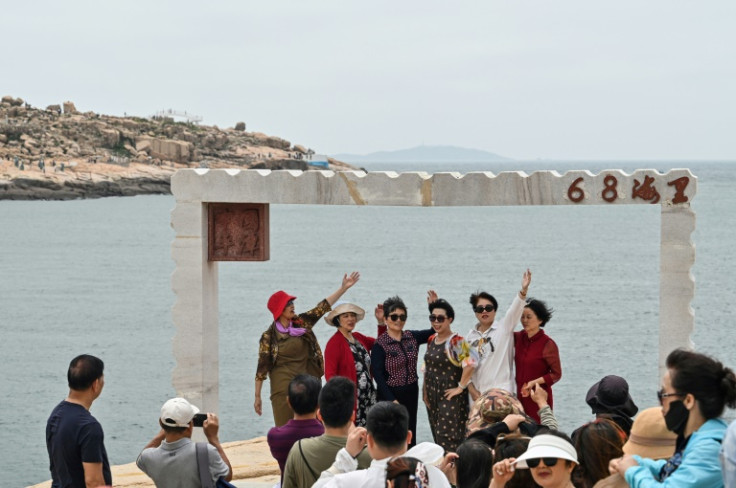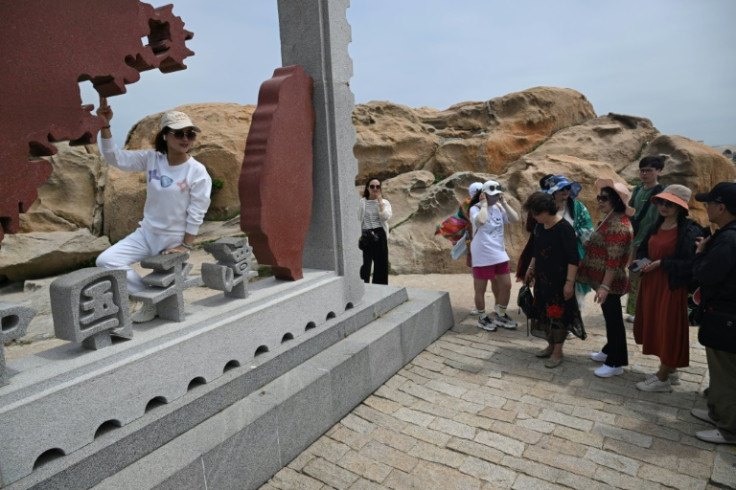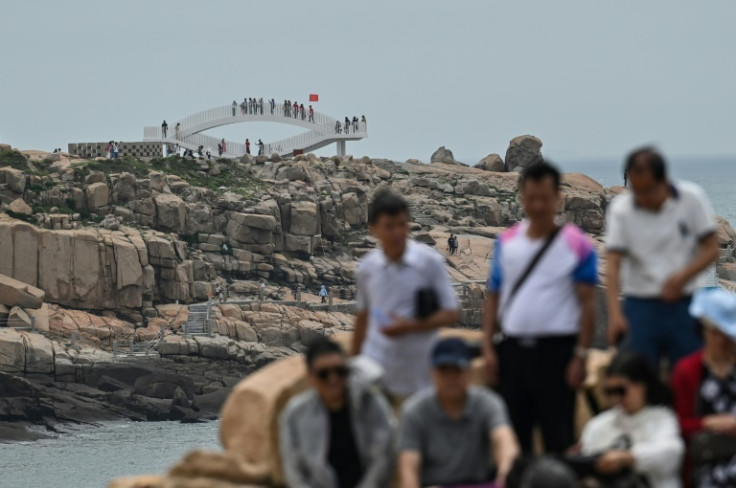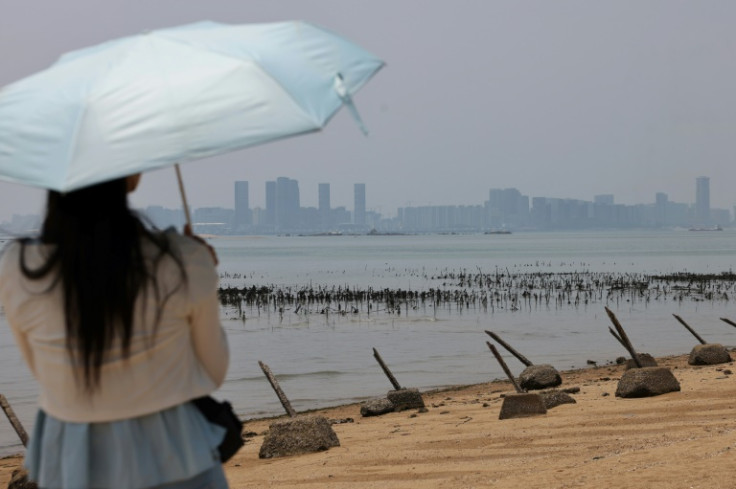
Standing on the shore of Taiwan's Kinmen island, Taiwanese tourists snap photos of the skyline of China's Xiamen city that is clearly visible across the sliver of water separating them.
For the best view of Xiamen's skyscrapers, visitors stand on a beach where anti-landing spikes jut out -- a reminder of when the island was a battlefield front line after Chinese nationalists fled to Taiwan in 1949.
More than 70 years later, China's communist leaders still vow to seize democratic Taiwan, which Beijing views as part of its territory.
Taipei-administered Kinmen is only five kilometres (three miles) from the Chinese mainland, compared to 200 kilometres from Taiwan island.
As Taiwan's president-elect Lai Ching-te, a staunch defender of Taiwan's sovereignty, prepares to take office on Monday, Taiwanese visitors to Kinmen hope he can avoid a conflict.
"We don't ask for much, but we hope we can have a peaceful relationship," said Huang Yue-e, 78, on Saturday as she visited a market on the tiny island famed for its temples and traditional brick houses.
"You live your life and we'll live ours, it's good for both sides, and don't go towards war," she said.
As the rift between China and Taiwan deepens, Beijing has been increasing military pressure on Taipei by regularly deploying fighter jets, naval ships and drones around the self-ruled island.
In recent months, Chinese coast guard ships have also started making frequent appearances in the waters near Kinmen.
Lai -- who has previously described himself as a "pragmatic worker for independence", enraging Beijing -- has more recently toned down his rhetoric.
In the run-up to his inauguration, he has made overtures to China for a resumption of high-level communications, which Beijing severed after current President Tsai Ing-wen came to office in 2016.
Chuang Cheng-tin, a construction worker from the central Taiwan city of Taichung, said it would be better for Taipei to "keep some distance" from Beijing.
"We have different systems so there would be conflicts if we were too close," Chuang told AFP as he wandered Kinmen's historic streets.
"We can't yield... otherwise we will be taken by them. We should keep a distance, be armed, so we can have a counterbalance against them."
On the verdant island of Pingtan, in the eastern Chinese province of Fujian, hundreds of tourists gather at a seaside site which is the closest place in mainland China to Taiwan.
Pingtan is about 125 kilometres from Taiwan island -- too far for visitors to see the other side with the naked eye.
Instead, they pose with sculptures representing the two shores and celebrating the nostalgia of the time when they were part of the same political system.
The site is intended to symbolise the historical links between the two sides, with the vast majority of Taiwan's 23 million people being of Chinese culture and having ancestors from mainland China.
"Chinese from the mainland need a permit to go to Taiwan and it's difficult to get one," Wang Lei, a 25-year-old student, told AFP as he took a photo of himself in front of a large granite frame sculpture of a postcard with the blue sea in the background.
"So coming here is a way of getting a glimpse of the island and its history."
While the tourists standing at the rocky site can only imagine Taiwan in the distance, some had clear views of its incoming president.
"Lai Ching-te is the scum of the Chinese nation" because he "promotes separation between Taiwan and mainland China," Jack Wang, 30, who works in international trade, told AFP.
"We aspire to peaceful reunification. But as the former Chinese leader Mao Zedong said, we can't renounce the use of force if it becomes necessary."
"Of course, the Taiwanese also aspire to reunification with the mainland," he added.
In fact, nearly 90 percent of Taiwanese wished to maintain the status quo, according to a 2023 poll by National Chengchi University in Taipei.
Less than two percent said they supported unification as soon as possible.
Some who spoke to AFP were dismissive of the political developments across the strait, preferring to enjoy the sights of Pingtan.
"Lai Ching-te? We don't really care about Taiwanese politics, to be honest," Zhou Yongping, a 54-year-old tourist, told AFP.
"We just come here to visit, drink and eat."










